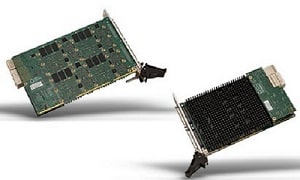- Aims to provide standard solutions with the help of customised development
- Comes with low-cost and high-performance
 To address the challenges while trying to maintain a right balance between performance, density/throughput within the right available power and cooling at the right cost per channel, Salland Engineering in association with Elevate Semiconductor has developed and designed the Instrument IP themselves. This enables customers to benefit from proven and available building blocks to achieve high performance and very high density at the right cost.
To address the challenges while trying to maintain a right balance between performance, density/throughput within the right available power and cooling at the right cost per channel, Salland Engineering in association with Elevate Semiconductor has developed and designed the Instrument IP themselves. This enables customers to benefit from proven and available building blocks to achieve high performance and very high density at the right cost.
Salland’s ”off-the-shelf” custom OEM instrument solutions allow the building of ATE instruments that are low in cost and pose minimal risk. The company’s latest proof of concept is a scalable 200MHz DPin IO technology based on ElevATE’s Mystery Octal SOC ASIC. This is a 64ch PXIe card with 8 Mystery ICs onboard featuring:
- 64 (/32)-channel, 200MHz/up to 500Mbps Digital I/O card in PXIe format
- Based on ElevATE Mystery ASIC and an FPGA based timing generator
- Scalable architecture in blocks of 16 channels up to 256+
- Technology can be used in all kind of form-factors; modules, ATE, PXIe, etc.
With the Mt. Mystery ASIC, Salland was able to dramatically increase channel count and speed in an air-cooled solution designed to fit into the strict power/space requirements for a PXIe card.
“We are very excited by what our engineering partner, Salland, has been able to do with our class-leading Mt. Mystery ASIC. We know our customers will appreciate the density of their solution and the flexibility of the PXIe architecture,” said David Kenyon, Elevate CEO.








